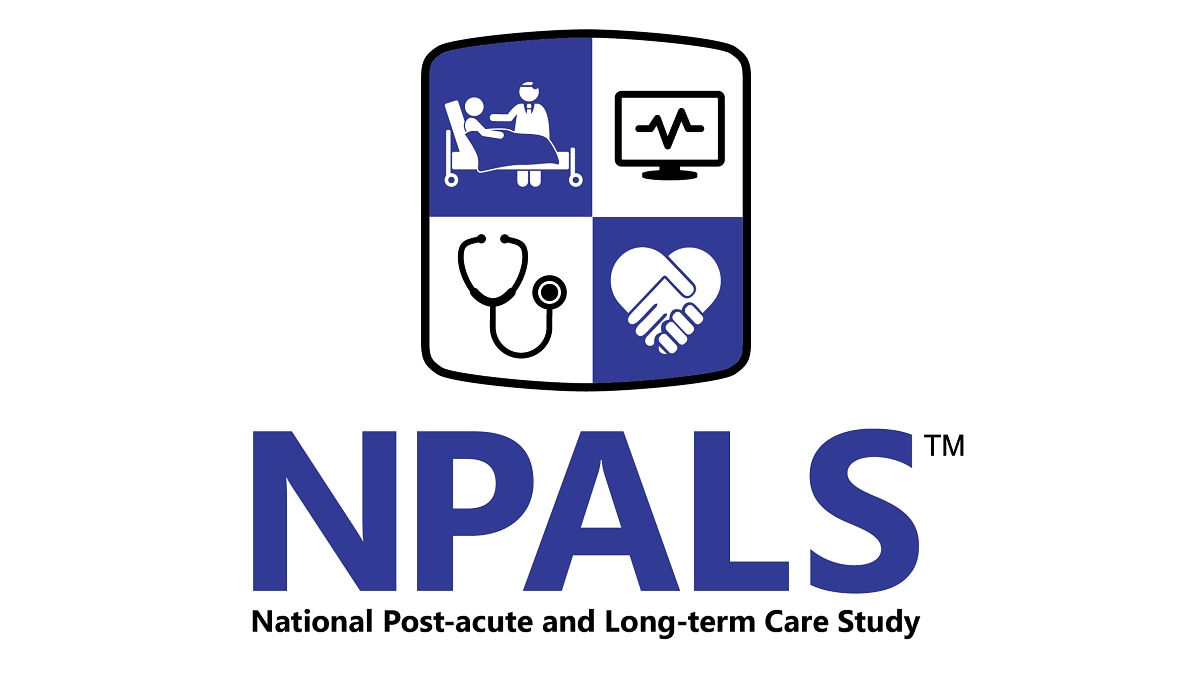At a glance
- Explore this gateway to data from the National Post-acute and Long-term Care Study (NPALS).
- Find survey methods, questionnaires, and other resources used to collect NPALS data.
- Access important technical information to help you understand, analyze, and use NPALS data.

About these resources
This page provides questionnaires, data documentation, and other detailed technical information for the National Post-acute and Long-term Care Study (NPALS). The page includes materials for both NPALS surveys—the Adult Day Services Centers Survey and the Residential Care Community Survey. These materials provide information about each NPALS survey, their participants, and their protocols, as well as other analytic notes and references. These resources will help you understand, analyze, and use NPALS data.
Resources are available for each two-year study cycle since the National Center for Health Statistics (NCHS) began collecting data for this study in 2012. NPALS was called the National Study of Long-Term Care Providers before 2020. Resources from before 2020 use the study's original name.
Datasets
Public use data files are only available for the 2022 and 2018 survey cycles. Those datasets are linked below. Codebooks with detailed information about each data item in the 2018 datasets also are provided.
Access to datasets from other previous NPALS study cycles is restricted. Restricted use datasets are available through the NCHS Research Data Center.
2022
Adult Day Services Centers (ADSC) Survey datasets are divided into those related to providers and those related to services users.
ReadMe Documents for Public Use Files (PUF)
Public Use Datasets and Codebooks
Access public use datasets for the Adult Day Services Center (ADSC) Survey.
Each dataset of provider files or service user files at the link above includes:
- SAS data file and SAS input statements
- STATA data file and STATA input statements
- R data file and R ReadMe document
- CSV data file
Questionnaires
Residential Care Communities (RCC) Survey datasets are divided into those related to providers and those related to services users.
Readme Documents for Public Use Files (PUF)
Public Use Datasets and Codebooks
Access Public Use Datasets for the Residential Care Communities (RCC) Survey.
Each dataset of provider files or service user files at the link above includes:
- SAS data file and SAS input statements
- STATA data file and STATA input statements
- R data file and R ReadMe document
- CSV data file
Questionnaires
2018
ReadMe Documents
ReadMe Documents for Public Use Files (PUF)
Public Use Datasets and Codebooks
Questionnaires
The adult day services center provider questionnaire collects information about the organizational characteristics of these providers, the services they offer, their staffing profile, and the demographic and functional status profile of their services users (residents or enrolled participants).
In 2018, NSLTCP collected information about individual services users for the first time. The services user telephone interview collected information about the demographics, health and functional status, and service utilization of two scientifically sampled services users.
Readme Documents
Readme Documents for Public Use Files (PUF)
Public Use Datasets
Questionnaires
The residential care community provider questionnaire collects information about the organizational characteristics of these providers, the services they offer, their staffing profile, and the demographic and functional status profile of their services users (residents or enrolled participants).
In 2018, NSLTCP collected information about individual services users for the first time. The services user telephone interview collected information about the demographics, health and functional status, and service utilization of two scientifically sampled services users.
2016
Questionnaires
In 2016, there were two versions of the Adult Day Services Center Questionnaire —version A and version B. NCHS used two versions of the questionnaire to increase content without increasing burden for respondents. For the core items common to both versions of the questionnaire, NCHS produced both state and national estimates. For the items unique to each version, NCHS produced only national estimates. Respondents were randomly assigned to one version of the questionnaire to produce accurate estimates.
Questionnaires
In 2016, there were two versions of the Residential Care Community Questionnaire —version A and version B. NCHS used two versions of the questionnaire to increase content without increasing burden for respondents. For the core items common to both versions of the questionnaire, NCHS produced both state and national estimates. For the items unique to each version, NCHS produced only national estimates. Respondents were randomly assigned to one version of the questionnaire to produce accurate estimates.
